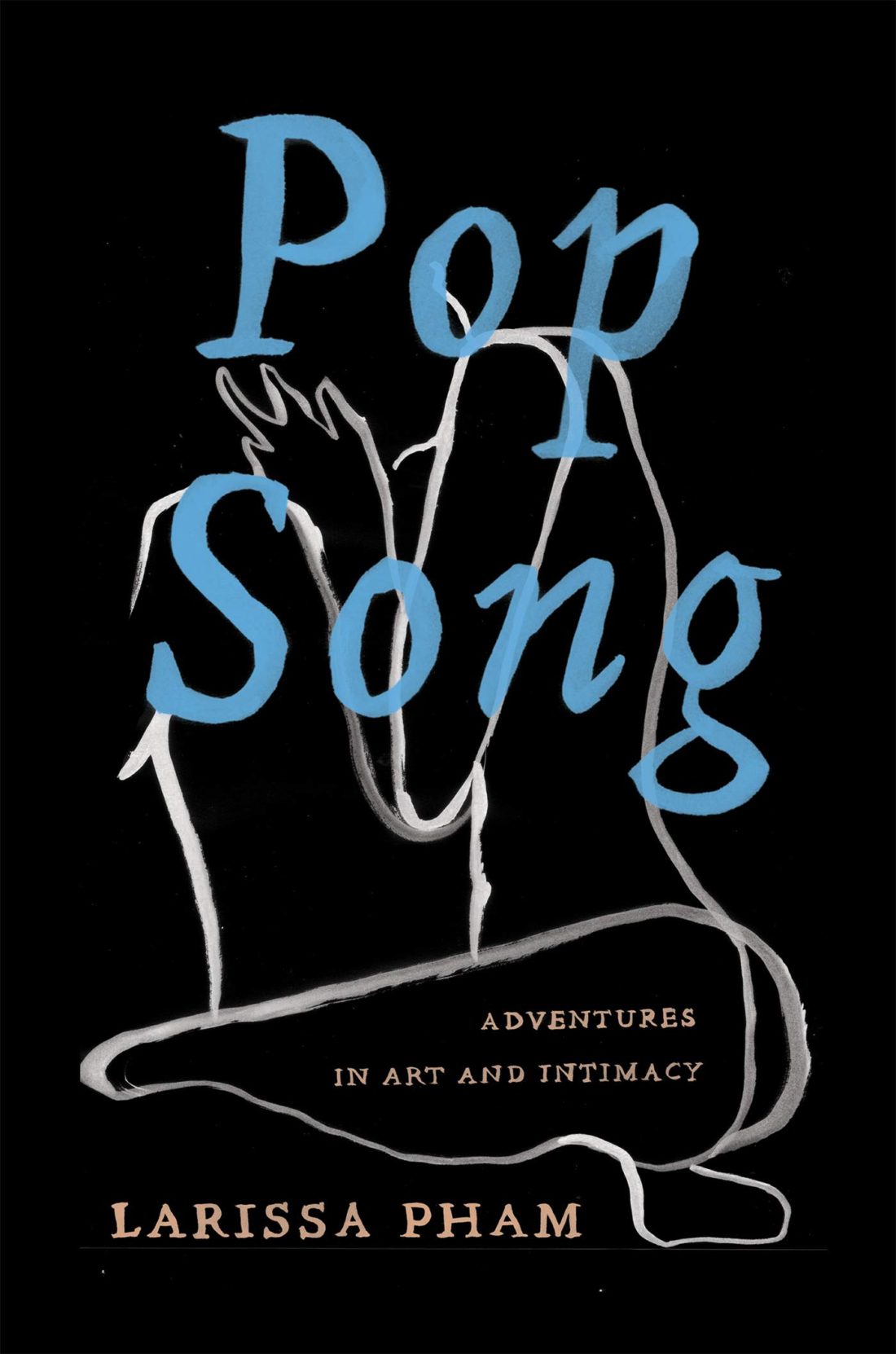Editor Sofia Montrone reviews Larissa Pham’s Pop Song: Adventures in Art & Intimacy
In the silence, in the dark, Larissa Pham hears something shift. First comes fear, and then, moments later, a type of clarity. “I’d come up to the edge of something,” Pham writes. “Not in the world, but in myself.” This could be a metaphor for the creative process, but it is also (literally) a story about running at night. The space between these two subjects – one abstract, the other totally quotidian – is the space in which Pham’s debut collection essays, Pop Song: Adventures in Art and Intimacy, flourishes into being.
Pop Song is a masterclass in the art of looking closely. Pham’s attention is delicate and lucid, cleaving to her subjects like film. Through her prose we see objects not only for what they are, but for what they represent – the emotions and memories they bear. Considering an Agnes Martin painting, Pham wonders, “why paint the sky when the sky itself is a stand-in, when you can instead paint the feeling you get when you look at the world and realize there’s so much beauty in it that you haven’t yet seen?”
Pham’s memoir-in-essays is full of stand-ins: Martin paintings, Nan Goldin photographs, a tremulously beautiful James Blake rendition of “A Case of You,” the surreal, prismatic landscape of Taos where Pham once spent time writing, observing. These subjects are not ornamental to Pham’s interests, but the very tools with which she is able to excavate her personal and romantic history. The collection’s major narrative through line involves a particularly fervent and ill-fated love affair with a man whose presence in Pham’s life coincided with the production of these essays. This nameless lover haunts the collection’s many passages and turns, sometimes tying together two seemingly discrepant threads, other times merely lurking, a brief reference intruding into the flow of the text. He is addressed directly – a choice that makes the reader feel as if they have intercepted a private communication. “I’ve never thought to tell someone about myself like that,” Pham confesses. “But I want to tell you.” Even as she describes their moments of tenderness and triumph – their first night together and joint tattoos – the tone of the prose is elegiac.
There is a magnetic quality to the way Pham narrates the course of the relationship, seducing us toward collapse with increasingly lush passages about love and lust, and the landscapes over which they are draped. Often, I felt the catch of breath in my chest – an echo of the longing that Pham so expertly renders, and the dread of knowing that to journey through longing is to arrive at loss.
It is an especial pleasure to receive this book at a time when the type of relationships that Pham describes feel like the product of a bygone era. Cloistered at home, Pham’s descriptions pinched at my sense of nostalgia. What I would give to travel, as she does, to Taos, Shanghai, or the French countryside where everything is “enormously, heart-breakingly perfect.” To feel my body move through the world, encountering other bodies. To stand by a river that “[glistens] like fresh oil paint” or roam for hours the galleries of a museum, both a member of the crowd and apart from it, lost in my looking. As I turned the pages of Pop Song I was transported to the same state of total, thrumming presence that I once had in front of works of art. In these moments, I felt that Pham and I were no longer author and reader, but companions in gaze. How delightful, to return to the quiet comradery of mutual consideration.
One of the collection’s most enduring motifs is the private Instagram account through which Pham and her partner communicate. When they are separated by country or city, or perhaps in the same city separated by something more adamantine than physical distance, the lovers share pictures of their surroundings. The photos uploaded to the account function as a pictographic language of intimacy, a desire to see with the same eyes. A fragment of sunset or pavement snapshot becomes an emotional envoy. This is, perhaps elliptically, a similar project to the one that Pham shares with her readers. She offers us an image, and in describing it, develops a new screen of meaning through which we might view and, in viewing, understand her. It is up to us to make sense of the grid – to find what is expressed through her constellation of images.
Like the music from which it takes its name, Pop Song is alchemical, broadly appealing. It is as accessible as it is smart. Pham’s introspection is never solipsistic, but rather an insight into a mind tuned to life’s minute rhythms. “What if, I wondered, I could stop reacting so much to the world…” Pham questions early in the collection. I hope that she never finds out. Pop Song is an extraordinary reaction, surely the first of many to come.
Pop Song / Larissa Pham / Catapult / 05/21 – $26 (Hardcover)

